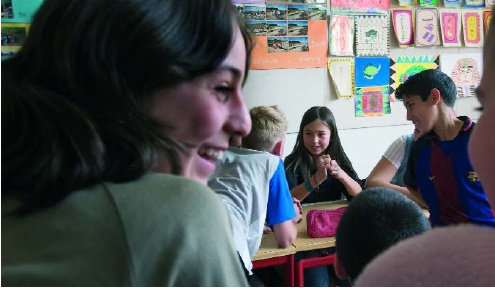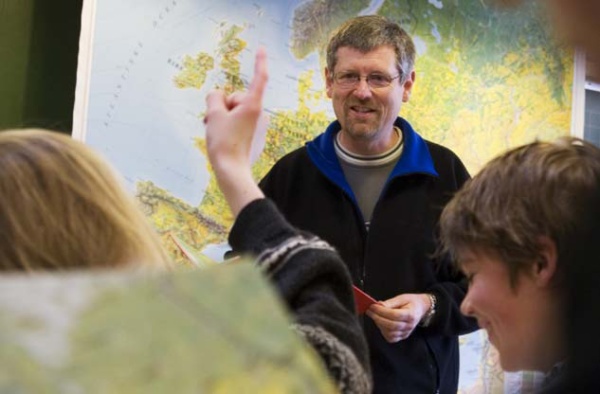
|

Active CitizenshipThe school shall teach the students to commit themselves and participate actively.Citizenship implies both rights and duties. But it also implies that the citizens participate and accept a responsibility for the society that they are part of. Primary and Lower Secondary Schools and General and Vocational Upper Secondary Education shall contribute to inspire the students to seek knowledge and influence on the society, and teach the students to commit themselves and participate actively. It is important that the students learn where to gather information about social matters. Furthermore the student shall learn to listen, be curious, take a critical position, and express their own opinion. 
Interview
Getting To Know Each Other Across Cultural BordersAccording to Mahmad Khatib, headmaster at an Arabic private independent school, it is important to teach the concept of citizenship, because it is a central part of the Danish society. All students shall learn how the society works, which is essential in order to gain influence on the society, says Mahmad Khatib. “The majority of our students are born and raised in Denmark, but their parents have come to Denmark without basic knowledge of democracy. Thus we must teach the students about the fundamental values of a democratic society. We must not isolate the students, but teach them how to take an active part of the Danish society,” says Mahmad Khatib, principal at DIA Privatskole, an Islamic-Arabic private independent school. Student ParticipationReflections on how to teach citizenship have resulted in a great number of initiatives at DIA Privatskole. It is e.g. very important that the students and their parents participate actively. Mahmad Khatib elaborates: “It is very important to us that the students gain influence and have the opportunity to express their personal views. The students are e.g. represented in the school board. We have established an antimobbing- patrol where student representatives mediate between students without interference from teachers. The students also attend courses on sound working environment where they meet students from other schools. When they return, they must tell what they have learned at the common morning meetings.” Thus citizenship is about providing the students with an understanding on how to exert influence, and how to deal with disagreements in their daily school life. For DIA Privatskole, it is most important that the students learn to debate with others in respect of conflicting views. Room for HeterogeneityAccordingly, the school has contacted other schools – among others Ollerup Friskole – which is based on Christianity – with the purpose of giving the students an opportunity to meet students who have a different cultural background and different religious views. So far the schools have visited each other several times: “We are not all alike – which is perfectly ok. We are different, and we have different views, but we must respect each other. Thus we must listen to the students. Some of them have extreme views, and we need to debate these views. We must communicate with the students and not isolate them. Thus it is very rewarding that they meet other students and get acquainted with these,” says Mahmad Khatib. We Must Cultivate HeterogeneityAccording to Peter Østman, teacher at Ollerup Friskole, the encounters have changed the students understanding of each other. “Basically we want to give the students an opportunity to examine something that is unfamiliar to them. It is important that the students are familiar with other cultures and ways of life, and we must speak with them about why we choose to live our lives the way we do.” Peter Østman is not only addressing religious differences: “It is also a question of general life conditions. We have different looks, but that only concerns the immediate impression. There are also differences between growing up in the country, or in a large city. The students from Copenhagen were very curious during their trip to South Funen. They had never seen a bare field before, or touched a large living animal, so it was a groundbreaking experience for many of them.” The school shall contribute to stimulate the students’ curiosity, and teach them how to express themselves. According to Peter Østman, the key to learning who you are, and to respect others, lies in the encounter with the unfamiliar. “It is important that the students make contact with other cultures. Not in order to change, but in order to understand the diversities of life,” says Peter Østman. He continues: “The precondition for understanding views of others is that you know your own.”
|
|||||
|
To the top of the page |
